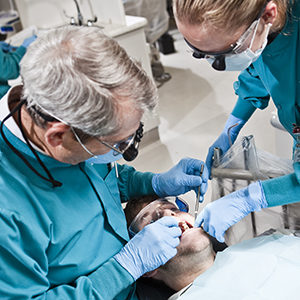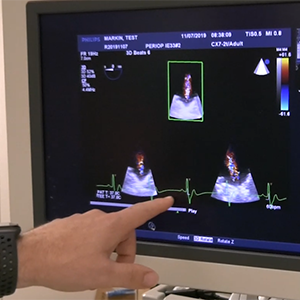by Lisa Carlson, UNeMed | September 7, 2021
Alternative medicine has people turning to essential oils, herbal medicines, and probiotics, among others, to treat all sorts of ailments. People using these products claim countless benefits, which include curing coronavirus, beating cancer, and improving mental health.
But do these things work?
Here, we will explore probiotics and evaluate the science to see if they are a digestive miracle or persistent myth.
Probiotics are microorganisms, like bacteria and yeast, with beneficial qualities. You can find products all over grocery stores within yogurt, cheeses, kombucha, kimchi, and other fermented products and drinks. There are also dietary supplements that people can take orally, each containing millions of live bacteria and yeast.
You probably think of germs when you think of bacteria, but there is a full spectrum of bacteria. Of course, some do make you sick, the bad guys. But others, the good guys, are essential for proper gut health.
So, how do we kill the bad guys while, at the same time, promoting growth of the good guys?
A quick Google search will tell you that probiotics are the answer. Probiotic sellers and people taking probiotics claim probiotics offer a myriad of health benefits. These include balancing your digestive system, treating diarrhea, improving mental health, reducing symptoms of digestive disorders, boosting your immune system, and even helping you lose belly fat.
Sounds impressive, right?
But if something sounds too good to be true, it usually is.
Nonetheless, savvy marketers have convinced a growing number of consumers that probiotics are the answer. Grand View Research reports that the probiotic market value in 2020 was $54.2 billion and will expand to $77 billion by 2025.
Commonly sold as dietary supplements, probiotics do not require FDA approval. Probiotic manufacturers can claim how the product may affect your body, but those claims cannot include using probiotics to cure or treat diseases.
As reported by the American Gastroenterological Association, there is not one FDA-approved health claim for any probiotic on the market.
However, high-quality scientific studies do exist that studied the effects of probiotics on humans. Unfortunately, the results of those studies are contradictory.
For every study suggesting that probiotics improve health, another shows probiotics do nothing or might even be harmful.
There is no conclusive evidence that probiotics improve digestive health.
In the studies that showed probiotics helped people, the benefits were subjective to the people taking it, the type of probiotic bacteria used, the design and analysis of the studies themselves, and the intended use of the probiotic.
There is still a laundry list of studies needed before we can use probiotics to treat digestive disorders like irritable bowel disease, which would require FDA approval.
The current standard of care for irritable bowel disease, or IBD, focuses on decreasing inflammation with immune system suppressors and anti-inflammatory drugs. Although these therapies can induce and maintain remission, they cause significant side effects. In the long term, most people with IBD require at least one surgery.
Researchers at the University of Nebraska Medical Center are taking on the challenge of designing better therapeutics to treat IBD. Researchers are looking at chloroquine, a common malaria treatment, for its anti-inflammatory properties to treat IBD. But chloroquine is readily absorbed and disseminated throughout the body and can cause harmful side effects.
David Oupicky, PhD, and Fei Yu, PhD, have developed a better way to deliver chloroquine directly to the gut, thereby limiting its harmful side effects. This new technology is an improved version of chloroquine that passes through the digestive system without getting absorbed into the bloodstream. Instead, these chloroquine-based polymers stay in the digestive tract and directly reduce harmful inflammation.
Until medications like UNMC’s new chloroquine formulation gains FDA approval, there are not many options. If you experience digestive upset, the best idea is to talk with your physician to diagnose the root cause so they can advise on the appropriate treatment.
As medicine advances, the idea of personalized probiotics is promising, but more research is needed. In their current state, probiotics are a digestive myth.









